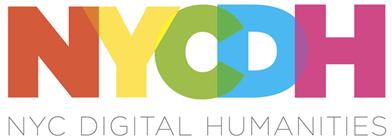Please consider joining our DH Panel at the NeMLA 2016 Conference, to be held in Hartford, CT from March 17-20. Interested panelists should submit abstracts on or before 9/30 at http://www.cfplist.com//nemla/Home/S/15764.
Literary studies finds itself today at a double crossroads: as trans-formative digital humanities practice becomes increasingly accepted and visible in our research and curricula, so, even in more traditional methods of inquiry, has the unit of the “trans-” gained traction. Transnational, transatlantic, trans-periodic, transgender, and translational issues, to name but a few, increasingly structure and energize our readings and re-readings of literary texts. With this panel, we seek to move beyond a ruptural understanding of DH, with its underlying anxiety about disciplinary change, and to explore instead the potential continuities between humanities computing and existing methods. How, we might ask, has DH built upon other trans-formative “turns” in the humanities that preceded it, and which have sought to capture how the literary combines and circulates through worlds, local and global, digital or otherwise?
Given this framework, we are especially interested in submissions that think DH together with postcolonial theory, globalization studies, sexuality studies, or across national, periodic and generic boundaries. More broadly, the panel solicits reports on research that lies at the intersection between digital technologies and traditional humanities inquiry. Topics may include but are not limited to digital scholarly editions, electronic literature, distant reading, crowd-sourcing, digitization initiatives, social network analysis, gaming, mapping and visualization tools, and topic modeling. How do these DH applications trans-form our knowledge production, disciplines, and teaching, while also preserving important points of contact and continuity with the theoretical approaches that have guided the humanities over the last 25 years?
